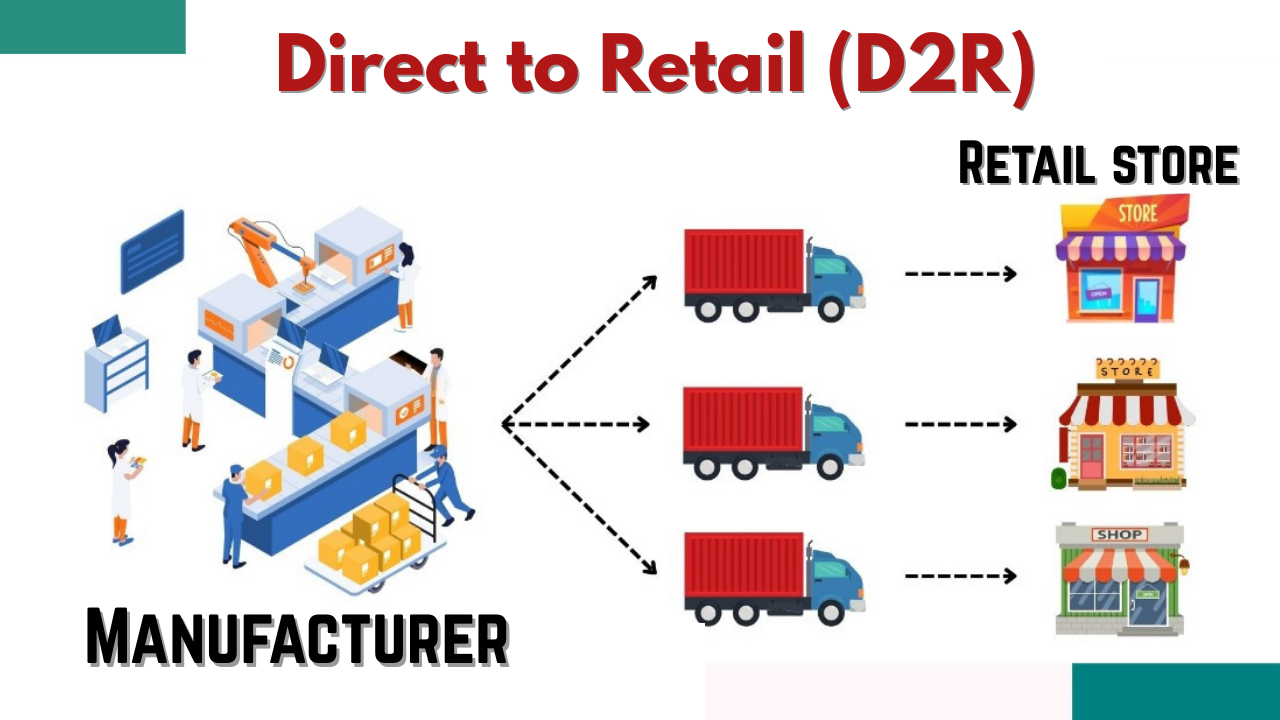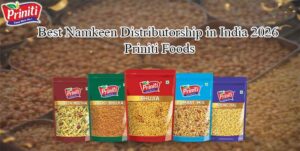Introduction
India’s FMCG industry is one of the most dynamic and competitive markets in the world. Changing consumer preferences, digital transformation, and the growing demand for convenience have completely reshaped the way FMCG companies distribute their products. Traditionally, FMCG companies relied on multi-layered distribution systems involving wholesalers, distributors, and retailers. However, Direct-to-Retail (D2R) has now emerged as a strong model that is redefining India’s FMCG landscape.
One of the leading brands that has adopted this change and created a strong impact is Priniti Foods, a trusted name in the snacks and namkeen segment.
What is Direct-to-Retail (D2R)?
Direct-to-Retail (D2R) is a business model where manufacturers supply products directly to modern retail outlets and supermarket chains, reducing heavy dependence on big distributors and intermediaries.
Brands like Priniti Foods are leveraging this model to strengthen their market reach and enhance brand value.
Key benefits of Direct-to-Retail include:
- Better supply chain efficiency
- Direct relationship with modern trade partners
- Improved profitability
- Faster product availability
- Greater control over branding and pricing
In India’s FMCG sector, where speed and reach are crucial, D2R is creating new opportunities for both companies and retailers. Priniti Foods is one of the finest examples of how D2R can help a brand deliver its snacks and namkeen quickly and directly through supermarket chains across the country.
Why is Direct-to-Retail Growing in India’s FMCG Market?
The rise of the D2R model in India is driven by several factors:
- Changing Consumer Behavior – Consumers want fresh, innovative, and authentic products, which brands can deliver faster through modern retail tie-ups.
- Digital Transformation – Technology enables companies to track demand, manage inventory, and directly connect with modern trade retailers.
- Retail Modernization – Supermarkets, hypermarkets, and quick-commerce platforms prefer direct partnerships for better margins and product availability.
- Cost Efficiency – Reducing multiple layers of distribution lowers costs, allowing companies to provide more value to customers.
Priniti Foods: A Strong Example of Direct-to-Retail Success
When it comes to snacks and namkeen, Priniti Foods has built a strong presence in India. The company offers a wide variety of products including:
- Chips & Wafers
- Puffs & Fryums
- Rings & Popcorn
- Traditional Namkeen
- Cookies
- Rusk
- Sweets (Laddoos, Traditional Mithai, etc.)
By focusing on quality, taste, and affordability, Priniti Foods has become a household name. What makes the brand even more special is its ability to adopt Direct-to-Retail strategies with modern trade partners, ensuring faster availability of products through supermarket chains and organized retail outlets.
How Priniti Foods Implements D2R
- Direct Modern Trade Partnerships: Works closely with leading supermarket chains and hypermarkets across India.
- Efficient Distribution Network: Ensures faster product supply and availability in organized retail outlets.
- Brand Control: Maintains consistent pricing, visibility, and promotions across all modern trade platforms.
- Customer-Centric Approach: Provides retailers with better margins and ensures customers receive fresh, hygienic, and tasty products.
This direct connection benefits both supermarket chains and end customers, making the brand more reliable and competitive
Benefits of D2R for FMCG Brands like Priniti Foods
- Wider Reach in Modern Trade
India’s growing supermarket and hypermarket ecosystem has become a strong channel for FMCG growth. With D2R, Priniti Foods ensures its products are available at leading retail chains, making it easier for customers across cities to access fresh and quality snacks. - Better Insights
By directly connecting with supermarket partners, Priniti Foods receives first-hand data on product demand, customer preferences, and sales trends. - Higher Profitability
In traditional distribution systems, wholesalers and multiple intermediaries consume a big portion of profit margins. With D2R, Priniti Foods gains cost efficiency, reduces dependency on third-party distributors, and offers better trade terms to modern retailers. - Stronger Brand Loyalty
Direct partnerships with supermarket chains help brands build long-term trust and visibility. Modern trade retailers prefer brands that provide consistent supply, strong promotions, and better margins.
The Future of D2R in India’s FMCG Sector
The future of FMCG in India is undoubtedly moving towards Direct-to-Retail with modern trade partners. With rising competition, increasing demand for transparency, and the need for speed, more FMCG companies are expected to adopt this model.
Priniti Foods is already setting benchmarks by balancing traditional distribution with modern D2R strategies. As technology continues to evolve, the D2R model will further empower FMCG brands to deliver more value directly to both retailers and consumers.
Conclusion
India’s FMCG sector is on the brink of a distribution revolution, and Direct-to-Retail (D2R) is at the center of this transformation. With strong players like Priniti Foods leading the way, this model ensures faster delivery, better quality control, and stronger retail relationships through modern trade channels.
As customers continue to demand freshness, variety, and value, D2R will redefine how FMCG brands operate in India.
FAQs on Direct-to-Retail (D2R) & Priniti Foods
Q1. Why did Priniti Foods adopt the D2R model?
Priniti Foods adopted the D2R model because it allows them to deliver their namkeen and snacks products directly to the market. This improves product availability, strengthens retailer relationships, and enhances consumer feedback.
Q2. What benefits do retailers get from the D2R model?
Retailers receive fresh stock directly from the manufacturer, better margin opportunities, and the advantage of faster delivery.
Q3. Which popular products of Priniti Foods are supplied through the D2R network?
Priniti Foods’ namkeen, chips, bhujia, potato-based snacks, and regional taste snacks are supplied directly to retailers through the D2R network.
Q4. Will the D2R model define the future of the FMCG sector in India?
Yes, D2R is a fast-growing trend that is boosting transparency, efficiency, and retailer engagement in the FMCG sector. Companies like Priniti Foods are successfully implementing this model and setting a benchmark.




